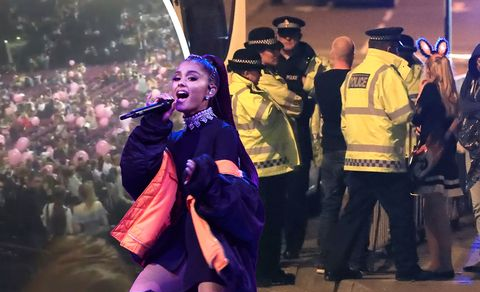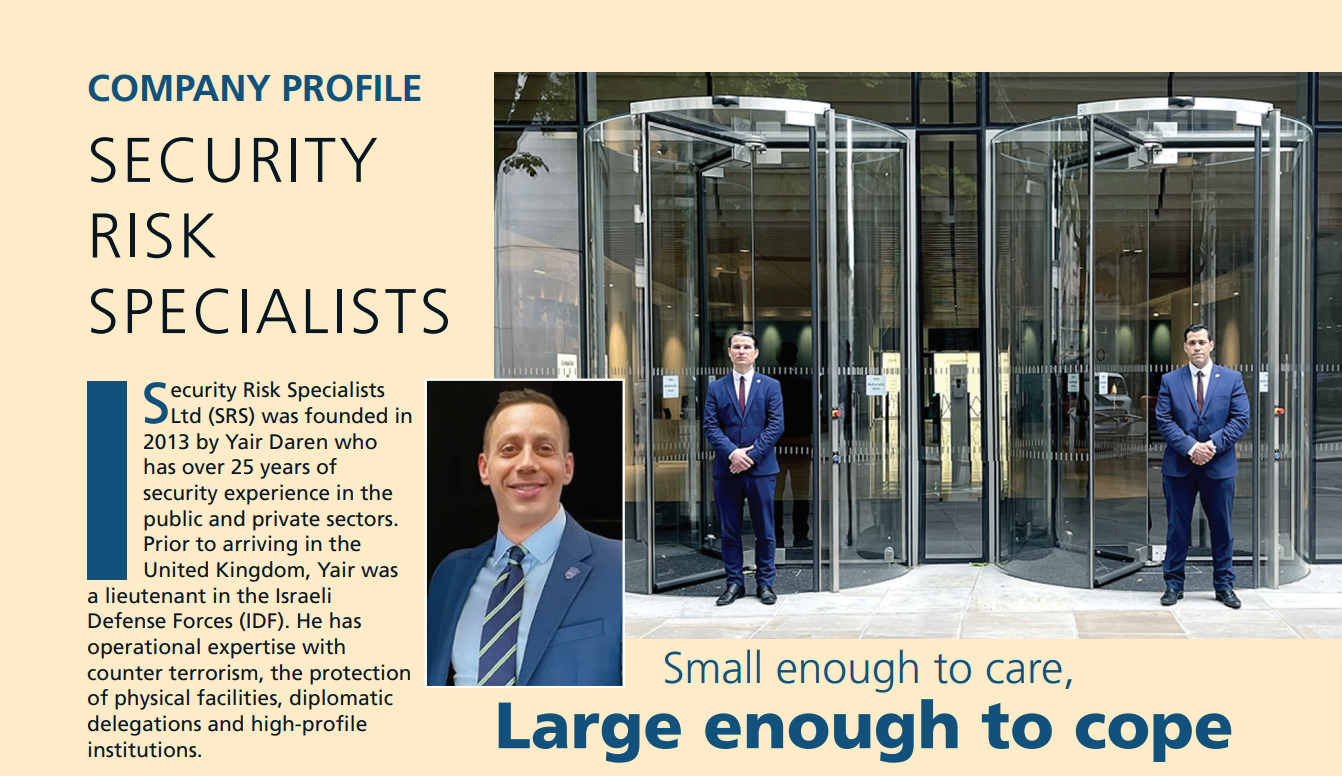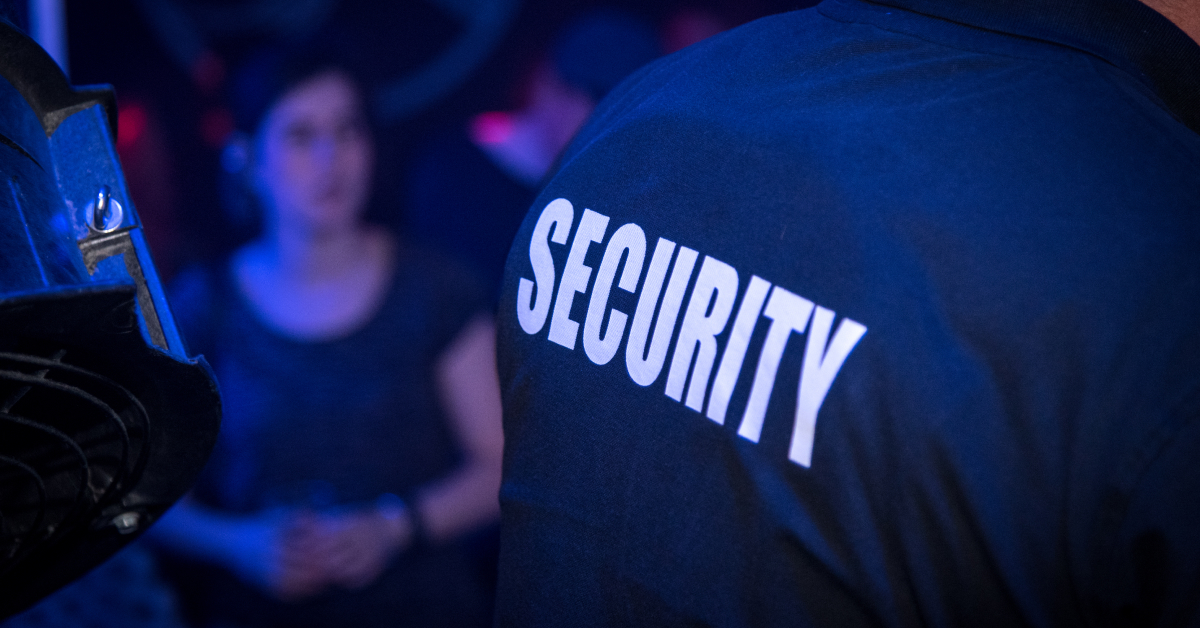On 22 May 2017, a shrapnel-laden homemade bomb was detonated by an Islamist extremist suicide bomber as people were leaving the Manchester Arena following a concert by Ariana Grande. In addition to the attacker, twenty two people died and 139 were wounded; children accounting for more than half of the total number.
Shared responsibility of security for the venue and immediate surrounding area involved both public and private sector organisations who bore particular responsibilities within the realms of their perceived powers and levels of training. However, a number of issues were highlighted in a subsequent lengthy inquiry that contributed, in some part, to the outcome of that horrendous night.
https://www.bbc.co.uk/news/uk-51908280
The purpose of this article is not to name and shame those organisations or individuals involved. To do so would be insensitive, unprofessional and unnecessary, and indeed, a much higher and vastly more experienced and qualified authority has spent a great length of time investigating such matters. To the contrary, it is the intention to summarise the known and public facts of the incident in an effort to highlight the vulnerabilities and subsequent learning outcomes that ALL private sector, SIA-regulated security companies must absorb in light of the findings. After all, private sector security has only one common denominator and that is the fact that all security guards, in whichever guise, should be properly trained and authorised by the Security Industry Authority. All other experience across the sector comes as a consequence of previous experiences, military, police and other public sector employment or further training undertaken at company or personal expense or effort.
How security industry standards came about?
The Security Industry Authority was set up by the Private Security Industry Act 2001 (the ‘2001 Act’) which came into force in 2003. Concerns had been raised about how those employed in security were conducting their duties and consequently security personnel were legally required to obtain relevant licences to their role. As those involved in the security sector are aware, or certainly should be aware, different licences are required depending on which role it is that the person is carrying out following training by ofqual-monitored training providers.
https://www.gov.uk/government/organisations/ofqual
As is often the case where private security is concerned, money is usually the key factor and sadly overrides the issue of the security itself as the primary concern. You get what you pay for….so if you require professional, properly trained and capable security then expect to pay for it. Security on minimum budgets is counter-productive and has the potential to attract basic or sub-standard performances. Sadly, it is the individuals who attract the negative criticism where, in fact, the security operatives can only be as good as the training and standards of the company they represent. Commercial pressures influence the inevitable offset between profitability and sector competitiveness and there are few organisations, public or private, which do not do this.
The subsequent inquiry following the Manchester Arena bombing highlighted two main areas of concern pertaining to CCTV systems and bag searches. It is a matter of public fact that those employed for those security functions were not properly regulated and therefore criticism was aimed at the decision making by those responsible for the security management of the concert. That said and as previously mentioned it is not the fault of the individuals carrying out the physical work but at the more strategic level by those implementing the security plan. As is often stated, the security plan of a business must compliment the business plan to achieve the best success. It opens the question as to what level of communication and intelligence sharing exists between public and private sectors involved in the securitisation of such events prior to and following the evening of the 22nd May 2017. Furthermore, this is also a consideration between businesses utilising security companies in London or anywhere else whereby the location, venue or guests may be of interest to potential acts of terrorism.
Threat Levels
The international terror threat scale was first made public in the U.K. in August 2006, just over a year after the London Tube and bus bombings. They are set by representatives from 16 government departments and agencies that make up the Joint Terrorism Analysis Centre (JTAC)and by the Security Service (MI5). The levels do not have expiry dates and can change at any time depending on the current threat assessment. In July 2019, the main terror alert system was changed to include all forms of terror threats irrespective of the ideology that drives them.
The threat levels are based on the following points, amongst others, with the resultant table below:
- Available intelligence – sometimes “specific threat information” but often relying on a wide range of information
- Terrorist capability, irrespective of ideology – including analysis of the potential scale of an attack
- Timescale – the likelihood of an attack in the near term
MI5 state:
“Vigilance is vital regardless of the current national threat level,” and that “sharing national threat levels with the general public keeps everyone informed“.
It adds that making the threat level public “also helps explain the context for the various security measures (for example bag searches or polite but intrusive screening by questioning) which we may encounter in our daily lives“.
| UK National Threat Level and Definition | Building Response Level |
Description |
|
Critical: |
Exceptional |
Maximum protective security. CRITICAL measures to meet specific threats and to minimise vulnerability and risk |
|
Severe: |
Heightened |
Additional and sustainable SUBSTANTIAL and SEVERE protective security measures reflecting the broad nature of the threat combined with specific business and geographical vulnerabilities and judgments on acceptable risk |
|
Substantial: |
Heightened |
Additional and sustainable SUBSTANTIAL and SEVERE protective security measures reflecting the broad nature of the threat combined with specific business and geographical vulnerabilities and judgments on acceptable risk |
|
Moderate: |
Normal |
Routine protective security. LOW and MODERATE measures appropriate to the business concerned |
| Low: An attack is highly unlikely |
Normal | Routine protective security. LOW and MODERATE measures appropriate to the business concerned |
(Referenced from the Security Service website, https://www.mi5.gov.uk/threat-levels)
In light of 2017 and questions raised in the inquiry it was identified that SIA -authorised security personnel lacked training, knowledge and therefore the required confidence in dealing with suspicious acts of a terrorist nature. As a consequence a training package has been produced to remedy the absent awareness of what is surely a fundamental skill required of our colleagues within the security industry. The online training is user friendly, relevant and very well put together and is highly encouraged. Private sector security, irrespective of location but where large public gatherings are evident or expected, should be allowed and entrusted to provide the best protection to the public, the client and themselves as individuals as is reasonably possible.
Security Risk Specialists have made the completion of this online training mandatory for employees in support of the government, security services and the public in confronting the minority of those who wish us harm. Additionally, the security company in London founded by an ex-Israeli Defence Force Lieutenant maintains an up to date security threat level posted on its webpage and strives to keep abreast of local and global news to ascertain potential issues with its areas of security interest within the capital. Training within the community is passed on, an example of which includes a recent workshop at a school located in central London during which staff were trained and refreshed on actions to be taken in the event of a bomb threat or incident as part of the workshop presentation.
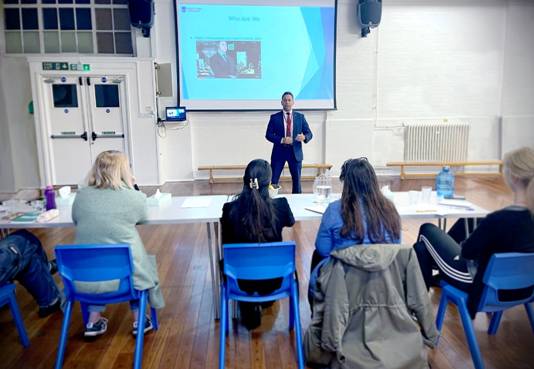
The importance of working as a team to help in the dissemination of terrorism awareness should be positively encouraged from the top and by those governing bodies that oversee the security industries in whichever format they may conduct their business. The implementation of the ACT training is a significant start and would no doubt have proved beneficial to our friends and colleagues involved in the Manchester incident. The unannounced testing of companies and their staff must be a consideration in the future as a way of identifying areas for improvement and in recognising those whose knowledge and awareness is of the required standard.
Security companies in London and throughout the U.K. must ensure employees are properly and adequately trained and qualifications are up to date for a number of reasons. First and foremost it is a legal obligation that the requirements of the 2001 Act are carried out; failing to do so constitutes a criminal offence. Secondly, provisions under theHealth and Safety at Work Act 1974 addresses specific areas of activity in relation to which risk arises.
https://www.legislation.gov.uk/ukpga/2001/12/contents https://www.inbrief.co.uk/employees/health-and-safety-at-work-act/
Complacency
Inattention and complacency are not good traits of a security company in London or any other location for that matter.Along with the other large cities in the U.K., London is a likely target for acts of terrorism where global attention is a guaranteed success. Prior to the Manchester Arena concert the National Threat Level was severe, meaning that an attack was highly likely. Threat levels may remain in place for long periods, even years, but their imposed length should not be taken for granted and each situation or contract should be assessed accordingly. As long as the threat level remains as severe, it is imperative that the appropriate vigilance is maintained. Invariably, it becomes increasingly more difficult to ensure that people maintain high levels of alertness in relation to the potential dangers when they have existed for some time and without their continued significance being highlighted. The most recent terrorist attack at a Women and Children’s Hospital in Liverpool has seen the threat level increased once again to severe following a period of reduced threat status.
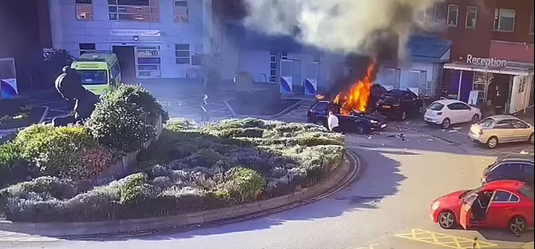
It is essential that excellent communication dictates a discussion between the security company and their client(s) as to the detail of the security plan and that suitable procedures are in place and conducted by authorised people. Sadly this was an oversight during the Manchester bombing and forms the argument that communication between the relevant authorities and those providing security should be forthcoming in respect of intelligence-sharing at an appropriate, but sufficient, level.
Moving Forward
One of those killed during the Manchester Arena bombing was Martyn Hett whose mother, Figen Murray, began a campaign to encourage a Protect Duty law in light of the incident. As a consequence, Martyn’s Law is proposed new anti-terror legislation which seeks to increase security measures in venues and other public places and for operators to take responsibility and prioritise security measures. The proposal is gathering government, private sector and public support in adhering to the following measures:
- Increased thorough security checks in publicly accessible locations
- Routine bag searches
- Location vulnerability assessments
- Free counter-terror training and advice for event staff
- Local authority action plans to counter-terrorism
Private security companies, nor the assets they protect, need to wait for Martyn’s Law to become official. Venue security through combined efforts of the owners, organisations and security practitioners can be enhanced in preparation of the legislation and promotethe credibility and professional approach of the security sector in light of the Manchester Arena Inquiry.
As the festive season approaches, Security Risk Specialists, a London Security Company, will endeavour to implement such continued measures at a time of heightened security and in light of the inquiry recommendations as they strive to continue as a leading and trusted security company.
Remember….be vigilant, be proactive, be safe!
Please contact us for further information on how Security Risk Specialists can help you.

